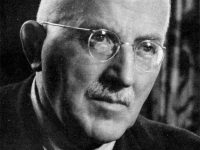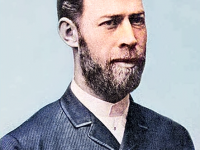Hermann Staudinger and the Macromolecules
On March 23, 1881, German organic chemist Hermann Staudinger was born. Staudinger demonstrated the existence of macromolecules, which he characterized as polymers. For this work he received the 1953 Nobel Prize in Chemistry. He is also known for his discovery of ketenes and of the Staudinger reaction. “The most fundamental difference between compounds of low molecular weight and macromolecular compounds resides in the fact that the latter may exhibit properties that cannot…
Read more






